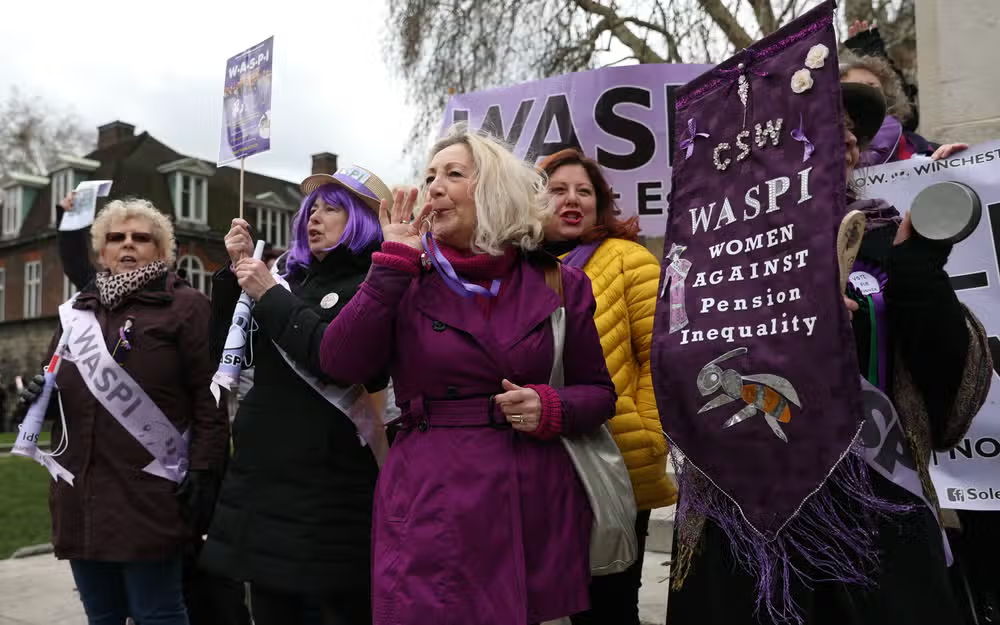
Introduction:
Women Against State Pension Inequality is a growing movement, led by women impacted by sudden, unfair changes to their state pension age. Many women, especially those born in the 1950s, had little or no warning about these adjustments, which have drastically changed their financial security and retirement plans. They are now fighting for justice, seeking acknowledgment and compensation for the emotional and financial strain caused.
For years, Women Against State Pension Inequality campaigners have raised their voices, demanding fair treatment and urgent action from the government. Although some officials have shown support, a clear resolution has been slow, leaving many women facing an uncertain future. In this post, we explore what the movement is about, why it matters, and what campaigners hope to achieve.
Understanding the Women Against State Pension Inequality Campaign
The Women Against State Pension Inequality campaign began as a response to changes in the state pension age, which affected many women in the UK. For women born in the 1950s, the increase in pension age meant waiting longer than expected for financial security. These women often did not receive adequate notice and suddenly faced years without the income they had planned on, impacting their lives significantly.
Many of these women are calling for fairness and compensation. They believe the government’s lack of clear communication about the changes was unfair, as it left them unprepared. Campaigners argue that the changes were implemented without consideration of their existing plans and responsibilities, such as caregiving or health issues.
This campaign, supported by the Women Against State Pension Inequality (Waspi) group, has raised awareness, built community support, and is pressing the government to address the issue. The goal is to gain justice and recognition for these women’s years of financial and emotional struggle.
Why Are Women Born in the 1950s Most Affected?
Women born in the 1950s are the group most affected by state pension age changes. For years, they had believed they would retire at 60, but new policies raised this age, often with very little warning. This sudden shift left them facing a financial gap during what should have been their retirement years.
The delay in receiving their pensions meant they had to make tough choices, like working longer or adjusting their retirement plans. Many also have caregiving roles or health challenges that make extended work difficult. These unexpected obstacles have caused hardship for a group that had worked hard and planned for retirement.
The Women Against State Pension Inequality group emphasizes that these women didn’t have time to prepare for the increase in pension age. This change forced them to confront new financial realities, often without the support or savings they had counted on.
The Financial and Emotional Toll on Women’s Lives
For many women, these pension changes have brought severe financial and emotional stress. Women who expected to retire at 60 have had to wait longer, and this delay has caused significant difficulties. Many relied on their pension to manage daily expenses, and the unexpected delay has left them struggling.
The delay has also taken an emotional toll on their lives. Many women feel betrayed by the lack of support and clear information about these changes. The prolonged wait for financial stability has led to feelings of anger, frustration, and even depression.
Campaigners argue that these changes have created inequality and that affected women deserve compensation. Their stories highlight how Women Against State Pension Inequality fight for fairness and for acknowledgment of their financial struggles.
What Is the Government’s Response So Far?
The government’s response to the Women Against State Pension Inequality campaign has been slow and limited. Officials have met with campaigners, but they have not yet committed to offering compensation or resolving the issue. For many women, the response has been disappointing and inadequate.
Some government representatives have acknowledged the impact of the pension age changes, but concrete action has been lacking. Many campaigners feel that the government hasn’t fully recognized the harm caused by the lack of clear communication and the sudden policy shift.
Women involved in the campaign are pressing for action, but they are still waiting for a clear decision. They hope the government will take their concerns seriously and provide support and compensation for the years they lost without warning.
Calls for Urgent Government Action on Pension Age Inequality
The Women Against State Pension Inequality campaign is pushing for immediate government action to address the hardships caused by pension age changes. Women affected by this issue are calling for compensation to cover their unexpected financial losses and to acknowledge the emotional stress they have experienced.
These women feel that time is running out. Many have been waiting for years, and they want the government to act quickly. They are demanding that officials recognize their struggles and offer a fair resolution, so they can move forward with financial security.
Key points campaigners are calling for include:
- Compensation for the financial gap created by the unexpected age change
- An apology or acknowledgment of the lack of clear communication
- A government promise to review and address similar issues for future generations
Conclusion:
The Women Against State Pension Inequality campaign is about fairness for women who lost their planned retirement years. Many of these women worked hard their whole lives, expecting to retire at 60. When the pension age changed, they were left unprepared, facing years without the income they counted on. They want the government to understand how hard this has been for them and to make things right.
By standing together, these women are hoping for a fair outcome, like compensation and acknowledgment of their struggles. The journey has been long and tough, but they aren’t giving up. They want future generations to see that speaking up can make a difference and that fairness is worth fighting for.
FAQs
Q: What is the Women Against State Pension Inequality campaign?
A: The Women Against State Pension Inequality campaign is a movement by women, mainly born in the 1950s, who are seeking fair treatment after unexpected changes to their state pension age.
Q: Why did the state pension age change for women born in the 1950s?
A: The government raised the state pension age to equalize it for men and women, but many women received little or no warning, which left them unprepared for the delay.
Q: How has the pension age change affected women?
A: Many women now have to work longer or manage without the pension income they planned for, causing financial and emotional stress.
Q: What are women in the campaign asking for?
A: Women in the campaign are asking for compensation, recognition of the harm caused, and clear communication to prevent this from happening in the future.
Q: Has the government responded to the Women Against State Pension Inequality campaign?
A: The government has acknowledged the campaign but has not committed to providing compensation or a clear solution yet.
Q: How can I support the Women Against State Pension Inequality campaign?
A: You can support by spreading awareness, joining discussions online, or supporting organizations working for fair treatment on this issue.







